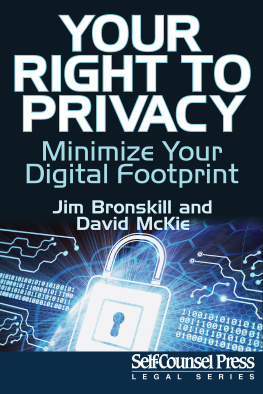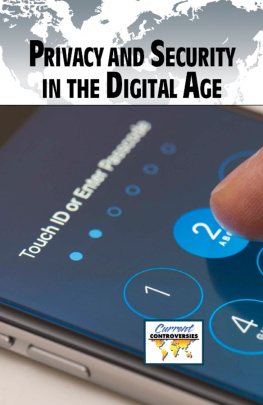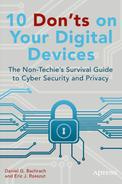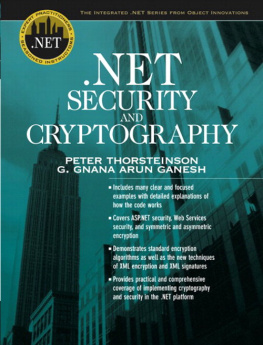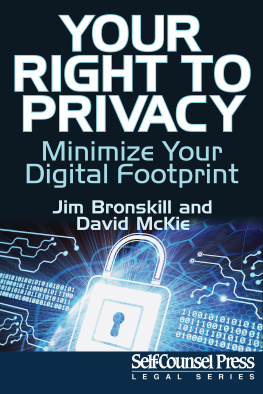The World Wide Web has changed our world. More than half the people in the United States now use the Web on a regular basis. We use it to read todays news, to check tomorrows weather, and to search for events that have happened in the distant past. And increasingly, the Web is the focus of the 21st century economy. Whether its the purchase of a $50 radio or the consummation of a $5 million business-to-business transaction, the Web is where the action is.
But the Web is not without its risks. Hand-in-hand with stories of the Internets gold rush are constant reminders that the 21st century Internet has all the safety and security of the U.S. Wild West of the 1860s. Consider:
Figure 1. On September 18, 1996, a group of Swedish hackers broke into the Central Intelligence Agencys web site (http://www.odci.gov/) and altered the home page, proclaiming that the Agency was the Central Stupidity Agency.
Attacks on web servers are not the only risks we face on the electronic frontier:
On August 25, 2000, a fraudulent press release was uploaded to the computer of Internet Wire, an Internet news agency. The press release claimed to be from Emulex Corporation, a maker of computer hardware, and claimed that the companys chief executive officer had resigned and that the company would have to adjust its most recent quarterly earnings to reflect a loss, instead of a profit. The next morning, Emulexs share price plunged by more than 60%: within a few hours, the multi-billion-dollar company had lost roughly half its value. A few days later, authorities announced the Emulex caper had been pulled off by a single personan ex-employee of the online news service, who had made a profit of nearly $250,000 by selling Emulex stock short before the release was issued.
Within hours of its release on May 4, 2000, a fast-moving computer worm called the "Love Bug touched tens of millions of computers throughout the Internet and caused untold damage. Written in Microsoft Visual Basic Scripting Language (VBS), the worm was spread by people running the Microsoft Outlook email program. When executed, the worm would mail copies of itself to every email address in the victims address book, then destroy every MP3 and JPEG file that it could locate on the victims machine.
A growing number of computer worms scan the victims hard disk for Microsoft Word and Excel files. These files are infected and then sent by email to recipients in the victims address book. Not only are infections potentially started more often, but confidential documents may be sent to inappropriate recipients.
The Web doesnt merely represent a threat for corporations. There are cyberstalkers, who use the Web to learn personal information and harass their victims. There are pedophiles, who start relationships with children and lure them away from home. Even users of apparently anonymous chat services arent safe: In February 1999, the defense contracting giant Raytheon filed suit against 21 unnamed individuals who made disparaging comments about the company on one of Yahoos online chat boards. Raytheon insisted that the 21 were current employees who had leaked confidential information; the company demanded that the Yahoo company reveal the identities behind the email addresses. Yahoo complied in May 1999. A few days later, Raytheon announced that four of the identified employees had resigned, and the lawsuit was dropped.[]
Even using apparently anonymous services on the Web may jeopardize your privacy and personal information. A study of the 21 most visited health-related web sites on the Internet (prepared for the California HealthCare Foundation) discovered that personal information provided at many of the sites was being inadvertently leaked to third-parties, including advertisers. In many cases, these data transfers were in violation of the web sites own stated privacy policies.[]
Web Security: Is Our Luck Running Out?
We have been incredibly lucky. Despite the numerous businesses, government organizations, and individuals that have found danger lurking on the Web, there have been remarkably few large-scale electronic attacks on the systems that make up the Web. Despite the fact that credit card numbers are not properly protected, there is surprisingly little traffic in stolen financial information. We are vulnerable, yet the sky hasnt fallen.
Today most Net-based attackers seem to be satisfied with the publicity that their assaults generate. Although there have been online criminal heists, there are so few that they still make the news. Security is weak, but the vast majority of Internet users still play by the rules.
Likewise, attackers have been quite limited in their aims. To the best of our knowledge, there have been no large-scale attempts to permanently crash the Internet or to undermine fundamental trust in society, the Internet, or specific corporations. The New York Times had its web site hacked, but the attackers didnt plant false stories into the newspapers web pages. Millions of credit card numbers have been stolen by hackers, but there are few cases in which these numbers have been directly used to commit large-scale credit fraud.
Indeed, despite the public humiliation resulting from the well-publicized Internet break-ins, none of the victimized organizations have suffered lasting harm. The Central Intelligence Agency, the U.S. Air Force, and UNICEF all still operate web servers, even though all of these organizations have suffered embarrassing break-ins. Even better, none of these organizations actually lost sensitive information as a result of the break-ins, because that information was stored on different machines. A few days after each organizations incident, their servers were up and running againthis time, we hope, with the security problems fixed.




